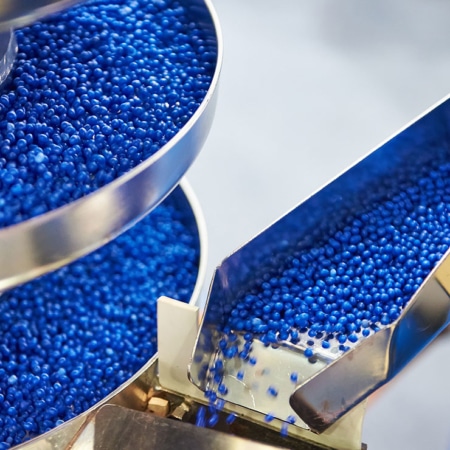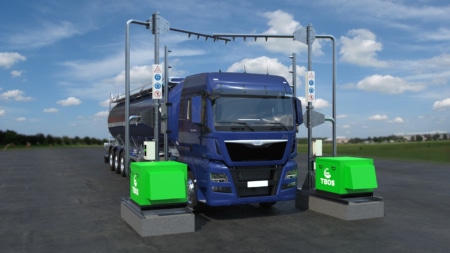Plastic pellets that are spilled in lorries and tankers can become toxic waste, polluting our oceans and harming marine life. Fortunately, there's a solution, in the form of SolvAir's TBOS plastic pellet removal system.
Why plastic pellets can be an environmental hazard
Plastics are part of everyday life, used in everything from food packaging to medical devices. According to the OECD's Global Plastics Outlook, annual global production of plastics has doubled, rising from 234 million tonnes in 2000 to 460 million tonnes in 2019.
The building blocks of all those plastic products are plastic pellets, also known as nurdles. Varying in size from 1 to 5mm, these tiny components are produced in their millions and transported to manufacturing plants across the UK.
Unfortunately, spillages of plastic pellets in transport that are not cleaned up can become an environmental hazard. They find their way into our rivers, seas and oceans, and can cause as much pollution as oil spills. A 2016 study by Eunomia estimated that up to 53 billion plastic pellets are lost to the UK environment each year. That's the equivalent of 35 full tanker loads.
Why do we need plastic pellets?
Without pre-production plastic pellets, we wouldn't have all the plastic products we rely on in our day-to-day lives. A vital part of the plastic manufacturing process, plastic pellets are produced by petrochemical chemical companies and carried to plastic manufacturing facilities where they're melted down and shaped into a final product.
How do spilled plastic pellets affect the environment?
With so many plastic pellets being shipped around the country every day, pellets spills are inevitable. They can happen during vehicle cleaning, loading and unloading, and sealing. Once they've been released, the plastic pellets can end up in marine environments.
Because of their size and appearance, plastic pellets can be mistaken for food by marine animals, such as seabirds, fish and crustaceans. They can become trapped in the animal's digestive system, stopping them from eating normally. They're also highly persistent pollutants and can continue to circulate in our seas for decades, carrying chemical toxins and other pollutants on their surfaces.
What's the solution?
SolvAir's Truck Blow-Off System (TBOS) is a unique, market-leading solution for plastic pellet removal and pellet cleaning for trucks and tankers. Fully automatic and energy saving, the system removes 90+% of plastic pellets and is easy to install, with minimal operational or logistical disruption.
How does TBOS work?
Plastic pellets are removed from the truck onto the surrounding floor area and can then be collected using a standard industrial vacuum system. Because TBOS doesn't use water, there's no need to worry about fluid containment, cleaning, filtering or maintenance.
Once installed, TBOS is fully automatic and can run 24/7 with no operator intervention. When activated by the arrival of a vehicle, the system emits a powerful airstream in excess of 700 KPH. The strategically-positioned Solojet nozzles are designed to target all areas the vehicle where plastic pellet spillages can gather, including wheel arches.
Help protect the environment
For any business involved in vehicle logistics for the transportation of plastic pellets, TBOS is a vital tool in fulfilling your environmental responsibilities and helping protect our planet for future generations.
It's also a reliable, cost-effective way of supporting the Operation Clean Sweep® (OCS) campaign. OCS is dedicated to helping every plastic resin handling operation achieve best practice and target zero plastic resin loss.
To find out more about the TBOS plastic pellet removal system, call SolvAir on (0)1473 320307 or email us.




